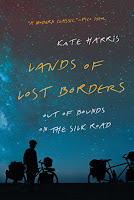Declaring that "the mandate of the Foundation has been more than fulfilled," the Charles Taylor Foundation has announced that the Taylor Prize for Nonfiction, given annually since
The Taylor had, I have to say, a choppy and inconsistent history. Years ago I observed that its juries were heavy with novelists and fiction critics, and the winners tended to be novelists who dabbled in nonfiction, as if the Taylor believed that its gold standard for good writing was always fiction, and the prize should inspire nonfiction writers to emulate novelists. (Early winners Wayne Johnston, Carol Shields, and Rudy Wiebe are all fine writers, but "notable nonfiction writer" is not usually at the top of their biographies.)
About that time, the Taylor shifted sharply. For several years its jurors were more often scholars and nonfiction writers. The winning books including books by historians (back-to-back wins for Richard Gwyn and Tim Cook in 2008-09), biographers (Charles Foran on Mordecai Richler, Rosemary Sullivan on Svetlana Stalin), and scholars in art history and religious studies -- to the point that there were complaints of too much focus on research scholarship). But there were also literary nonfiction winners that mixed travel, journalism, advocacy, and personal essay. In recent years the Prize noted diversity with winning books by Thomas King and Tanya Talaga, and for 2019 it honoured a luminous travel memoir by Kate Harris.
These are a lot of good and deserving books (I have not read them all!) but the prize's sense of what nonfiction seemed to be swaying in the wind. And the jurors for the final prize are Margaret Atwood, Coral Ann Howells, and Peter Theroux. An estimable team (I would have confidence about anything Margaret Atwood took on!), but still it's a nonfiction jury that comprises a novelist, a British scholar of Canadian fiction, and an American translator of fiction. It doesn't suggest that the Taylor lives or has lived at the heart of Canadian nonfiction, or that it thinks being a practitioner of literary nonfiction is a valuable credential for its jurors.
I'm glad the prize existed and I'm glad for all the writers who got deserved and valuable support and recognition from it. I hope the Taylor Foundation continues its program of awards for emerging Canadian writers of nonfiction, and maybe other programs. Canadian nonfiction writers still have the Writers' Trust Weston Prize, the BC National Award, and the Governor-General's Literary Awards, not a bad list. Historians have the CHA Prize, the Dafoe prize in biography, and others. The Taylor's final shortlist appears in January and the winner in March.

